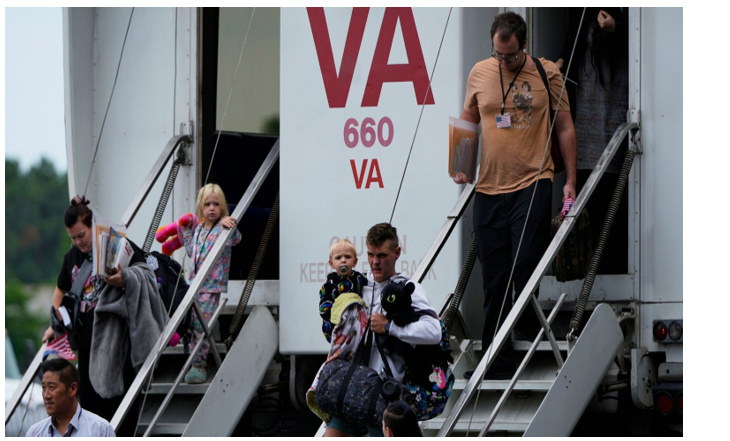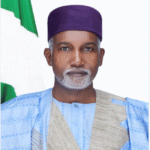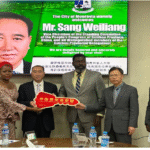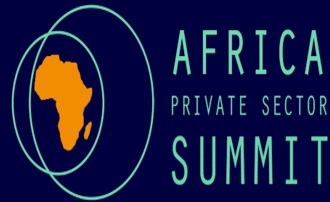By Emily Sims
Washington D.C. – A charter plane carrying 59 white South Africans of Afrikaner descent landed at Dulles International Airport on Monday, igniting a firestorm of international debate and criticism. These individuals, the first Afrikaners to be admitted to the US as refugees, were greeted by senior officials from the Trump administration and welcomed with small American flags. However, their arrival, coinciding with a near-total suspension of the US Refugee Admissions Program, has raised serious questions about selective refugee policies and potential bias.
President Trump’s executive order on January 20th effectively halted the refugee program. Yet, just weeks later, an exception was made for Afrikaners, with the White House citing racial discrimination as the basis for their acceptance. This decision followed claims from Trump advisor Elon Musk, a South African native, about alleged genocide and land expropriation targeting white farmers in South Africa.
The South African government has vehemently denied these claims, and some prominent Afrikaners have also disputed the U.S. administration’s depiction of the situation. Attempts by Euronews to reach major Afrikaner groups in South Africa for comment were unsuccessful.
The optics of the Afrikaner resettlement have drawn sharp criticism. Loren Landau, professor of migration and development at the University of Oxford, stated, “It sends a very clear message to the world and to American citizens that, even as the US attempts to deport millions of (people of colour), the Trump administration will welcome a group of people from elsewhere who have historically been associated with white supremacy and elitism,” referencing the legacy of South Africa’s Afrikaner-led apartheid regime.
Landau argued that other vulnerable populations, such as those fleeing the conflict in Sudan, are in far greater need of resettlement. He questioned the legitimacy of the Afrikaners’ refugee status, stating they “may face some level of anti-white discrimination…but by no means need to fear for their lives or livelihoods because of who they are.”
The ramifications of this selective refugee policy could be far-reaching, according to Landau. “It opens space for every country in the world to say, ‘If the US, the world’s richest country, won’t take genuine refugees, why should we?'”
Until Trump’s executive order, the US was the world’s leading resettlement country. Bill Frelick, director of Human Rights Watch’s (HRW) Refugee and Migrant Rights Division, highlighted the detrimental impact of the program’s suspension on the already limited resettlement opportunities for the world’s estimated 38 million refugees.
Frelick echoed Landau’s sentiment, suggesting that “Trump’s thinking is transactional and is driven by other foreign policy considerations,” citing the President’s criticisms of South Africa’s stance on the conflict in Gaza.
Mevlüde Akay Alp, a senior litigation attorney at the International Refugee Assistance Project (IRAP), emphasized the expedited nature of the Afrikaners’ applications. “Historically, the process involves significant vetting and screening. It typically takes years for refugees to be admitted to the United States. What stands in stark contrast about the admission of dozens of Afrikaners this week is that they were fast-tracked in a matter of months.”
Meanwhile, thousands of refugees who were already approved and had travel booked to the US before January 20th remain in a state of limbo, unsure about their future despite a court order requiring the Trump administration to grant them entry. The preferential treatment afforded to the Afrikaner group has further fueled accusations of bias and raised serious concerns about the future of refugee resettlement in the United States.









